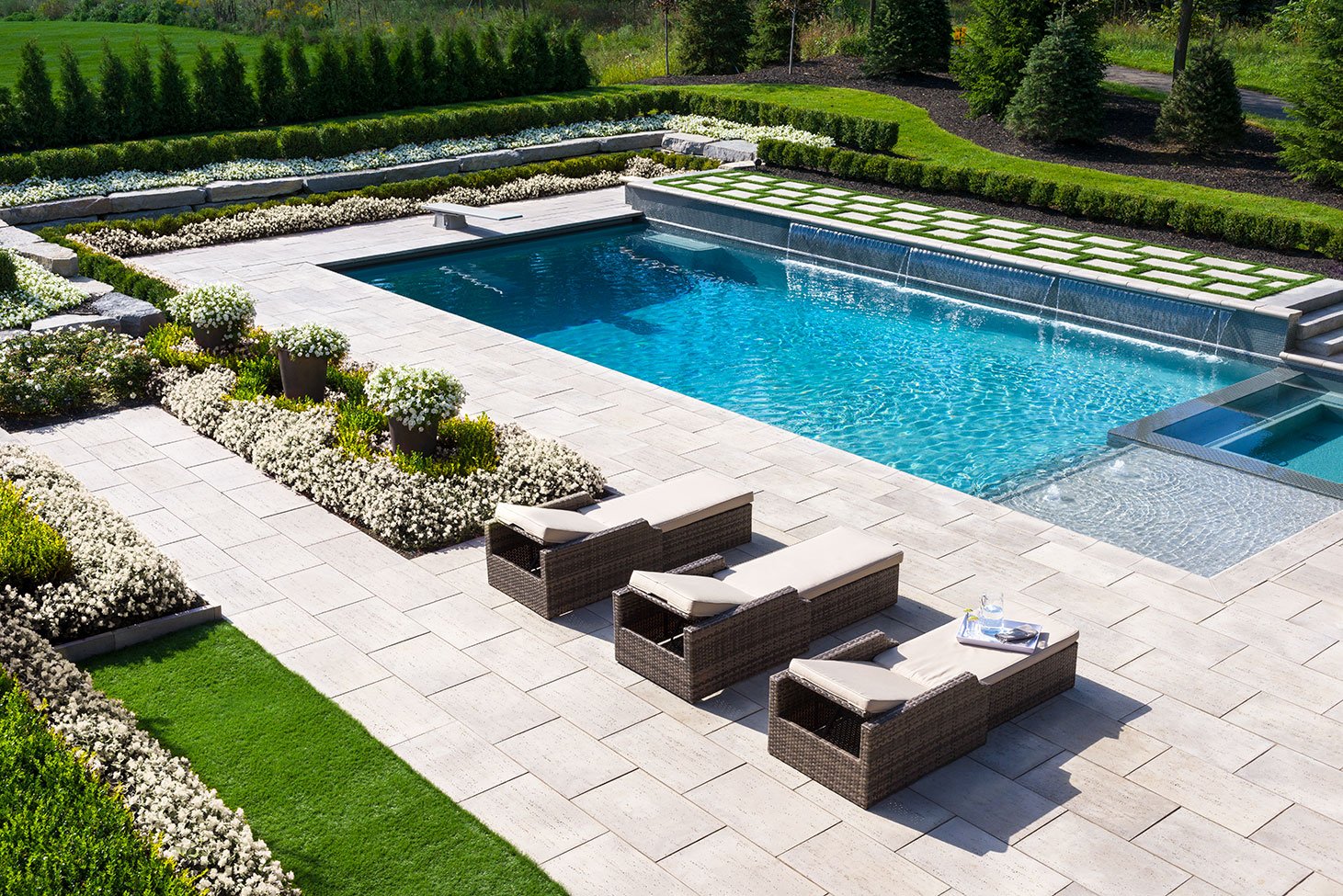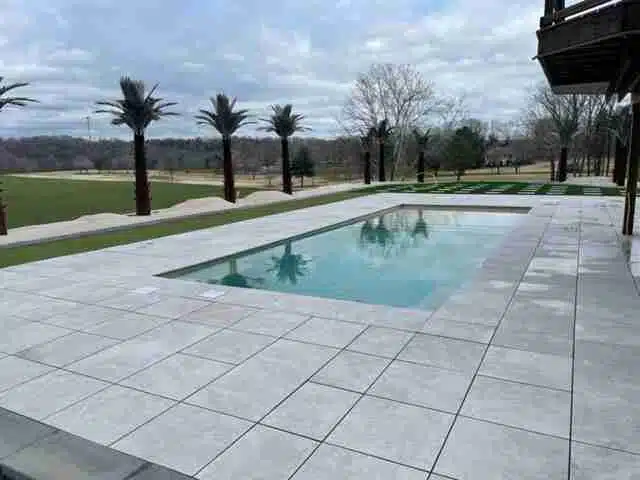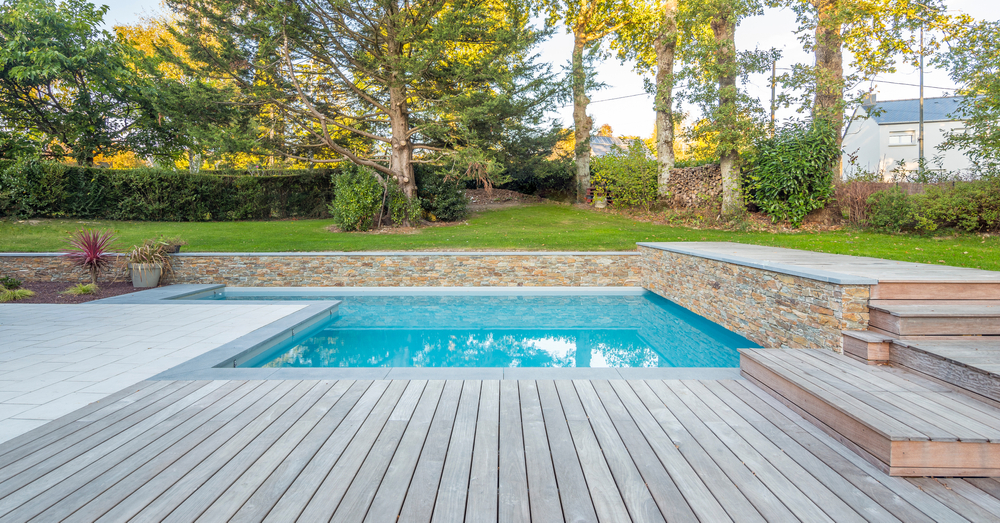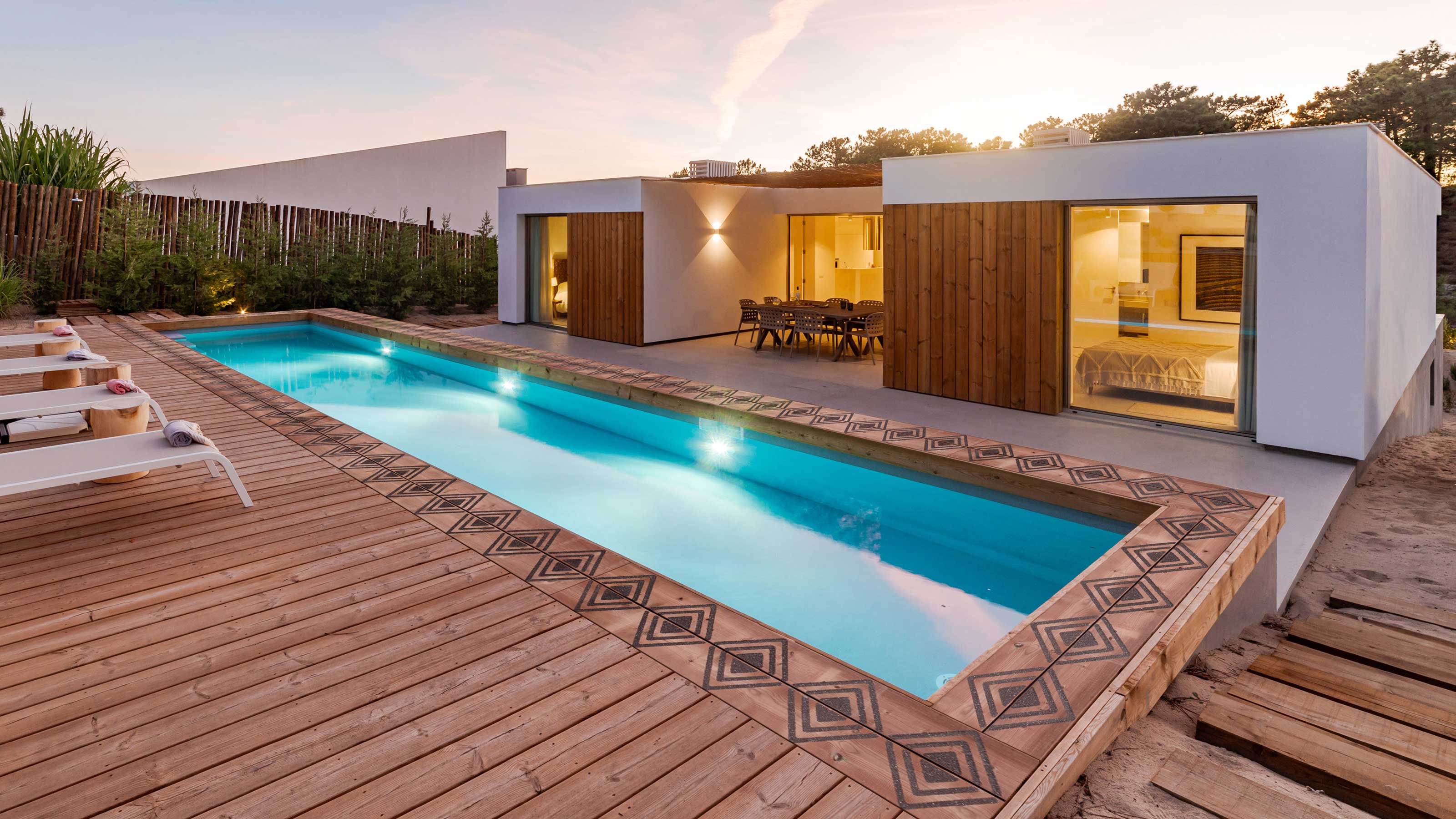Pool Decks
The Perfect Complement to Your Pool
Pool Decks
The Perfect Complement to Your Pool
Why Choose NexGen for Your Cement Work?

Custom Designs: Every pool deck we build is tailored to fit the unique style and layout of your pool and surrounding space. Whether you want a sleek, modern deck or a more natural, rustic feel, we provide a wide variety of design options to suit your taste and needs.
Durability & Safety: We use high-quality materials that are designed to withstand the elements while providing a non-slip, safe surface around your pool. Our pool decks are built to last, withstanding constant exposure to water, sun, and foot traffic without losing their beauty.
Low Maintenance: We use materials that are not only durable but also easy to maintain, ensuring your pool deck continues to look beautiful with minimal effort. Whether you choose concrete, pavers, or natural stone, we help you find the best option that fits your lifestyle.

NexGen Gallery
Here is some of our work. You can filter to see cement!



Simple process. Amazing results
How It Works
With Creations, you get an entire landscape or outdoor living plans, with designs and renders that bring your vision to life.

Consultation & Concept
we start with a consultation to discuss your vision,site assessment, and budget. We'll then create preliminary sketches based on your feedback, refining the design accordingly

Design & Planning
we start with a consultation to discuss your vision,site assessment, and budget. We'll then create preliminary sketches based on your feedback, refining the design accordingly

Preparation & Approval
Ready to see your design realized? After approval, we'll connect you with trusted contractors for installation, saving you time and money
Financing Built Around You

At NexGen Remodeling, we make it easy to bring your vision to life with flexible financing options designed just for you. Thanks to our partnerships with trusted lenders, we’ve secured great rates that you can benefit from...even if interest rates go up. Let us help you create your dream space without the financial stress!

Pool Decks FAQ's
Have questions? This is a short list of our most frequently asked questions about composite decks. For more information, please call 323-533-4822
What materials are best for pool decks?
Pool decks can be constructed from a variety of materials, including concrete, pavers, natural stone, composite decking, and wood. The choice depends on your budget, design preferences, and desired durability.
Are certain materials better for slip resistance?
Yes, materials like textured concrete, pavers, and certain natural stones offer better slip resistance. These surfaces can also be treated with non-slip coatings for added safety.
How long does it take to build a pool deck?
The construction time varies depending on the size, material, and complexity of the design. On average, most pool decks take 1–3 weeks to complete.
Do I need to seal my pool deck?
Sealing your pool deck is recommended for materials like concrete, pavers, and natural stone. It helps protect against water damage, staining, and fading caused by UV exposure.
Can you repair or replace an existing pool deck?
Regular cleaning, sealing every few years, and addressing cracks promptly can help preserve your concrete surface and keep it in top condition over time.ShareGPT-4oAuto
Check Out Our Blog

Benefits of Using Pavers for Driveways
Benefits of Using Pavers for Driveways Compared to Other Solutions
When it comes to creating a durable, attractive, and functional driveway, homeowners and property developers face a variety of options, such as asphalt, concrete, gravel, or pavers. Among these, pavers have emerged as a top choice due to their versatility, aesthetic appeal, and practical advantages. In this blog, we’ll explore the benefits of using pavers for driveways and why they outshine other solutions.
1. Enhanced Durability and Longevity
Pavers are renowned for their strength and ability to withstand heavy loads, making them ideal for driveways. Unlike concrete or asphalt, which can crack over time due to temperature fluctuations or ground movement, pavers are installed as individual units. This flexibility ensures they can adapt to minor shifts in the ground without breaking, prolonging their lifespan significantly.
For example, while a concrete driveway might require repairs or replacement every 10–15 years, a properly maintained paver driveway can last several decades.
2. Aesthetic Versatility
Driveway pavers come in a wide range of colors, shapes, textures, and patterns, allowing homeowners to create customized designs that complement their property. Whether you prefer a classic cobblestone look, sleek modern lines, or rustic brick styles, pavers can cater to virtually any aesthetic preference.
This versatility stands in contrast to asphalt and concrete, which offer limited design options and can lack visual appeal. A well-designed paver driveway can enhance your home’s curb appeal and even increase its market value.
3. Superior Drainage and Slip Resistance
One of the standout advantages of pavers is their ability to promote excellent drainage. Pavers are installed with small gaps between them, which allows rainwater to seep through into the ground rather than pooling on the surface. This reduces the risk of flooding and water damage, which is a common problem with solid concrete or asphalt surfaces.
Additionally, many pavers feature textured surfaces that provide superior traction, reducing the risk of slips and falls even in wet conditions—a significant safety benefit.
4. Easy Repairs and Maintenance
Unlike concrete or asphalt, which can require extensive and costly repairs if they crack or deteriorate, pavers offer a convenient solution. If a single paver gets damaged, it can be replaced individually without disturbing the rest of the driveway. This localized repair approach saves both time and money in the long run.
Routine maintenance of paver driveways typically involves sweeping, occasional power washing, and replenishing joint sand to keep them looking their best. In contrast, concrete driveways might require sealing or patching, and asphalt surfaces often need resurfacing.
5. Eco-Friendliness and Sustainability
For environmentally-conscious homeowners, pavers are an excellent choice. Many pavers are made from natural materials like clay or recycled materials, and their permeable design supports groundwater replenishment by reducing runoff.
In comparison, materials like asphalt contribute to heat absorption and urban heat island effects, while concrete production is energy-intensive. Choosing pavers helps reduce your environmental footprint while adding value to your property.
6. Cost-Effectiveness in the Long Run
While pavers may have a higher upfront installation cost compared to asphalt or poured concrete, they offer significant savings over time. Their durability, minimal maintenance requirements, and long lifespan reduce the need for frequent repairs and replacements, making them a cost-effective solution in the long run.
Conclusion: Pavers Are a Smart Choice for Driveways
From their unmatched durability to their aesthetic appeal and environmental benefits, pavers offer numerous advantages over traditional driveway materials like concrete, asphalt, or gravel. They not only provide a long-lasting and practical surface for vehicles but also enhance the overall beauty and value of your home.
Whether you’re building a new driveway or upgrading an existing one, investing in pavers is a decision that pays off in both functionality and curb appeal.
Schedule a Free Consultation!
"Book a call with us and we'll be happy to assist you with your needs"
Schedule a Free Consultation!
"Book a call with us and we'll be happy to assist you with your needs"
Paver FAQ's
What makes paving stones a better material choice for driveways, pool decks, and other hardscape projects?
Paving stones provide exceptional durability and long-lasting value, far outperforming concrete or asphalt. With the ability to withstand up to 8,000 PSI—double that of concrete—pavers won’t crumble under heavy use or extreme weather conditions. Unlike rigid concrete or asphalt, pavers are designed to adapt to shifting ground, which helps prevent cracking and long-term damage to your driveway or outdoor space. This flexibility makes them a smart, resilient choice for hardscape projects.
How long do pavers typically last compared to other materials?
Paving stones are built to last for decades with proper installation and minimal maintenance, significantly outlasting other materials like concrete, asphalt, or gravel. Concrete and asphalt often crack and degrade over time, especially under heavy loads or in harsh weather conditions. However, pavers are individually placed, allowing them to remain intact even when the ground shifts, extending their lifespan. Many paver installations can last 30-50 years or more, depending on the materials used and the conditions. Additionally, many manufacturers offer warranties on pavers, ensuring long-term performance and peace of mind.
Are pavers easy to repair if they get damaged?
Yes, pavers are one of the most repair-friendly materials available for hardscaping. Unlike concrete or asphalt, where damage often requires large sections to be replaced, pavers are individual units, making them easy to remove and replace if necessary. Whether a paver gets chipped, stained, or cracked, you can simply remove the damaged piece and replace it with a new one, leaving the surrounding area untouched. This convenience not only saves time and money on repairs but also ensures that the surface maintains a seamless look after repairs are done.
Do pavers require a lot of maintenance?
Pavers are relatively low-maintenance compared to other materials. Basic upkeep includes sweeping to remove dirt and debris, occasional rinsing to wash away grime, and re-sanding joints every few years to maintain stability. They are resistant to staining, fading, and weathering, meaning they maintain their color and appearance for years. For added protection, you can apply a sealant that enhances the pavers' natural color while protecting them from stains, weeds, and moss growth. Pavers also drain water efficiently, reducing the risk of pooling and preventing water-related damage like erosion or cracks.
Free Design and Instant Estimate
Copyright NexGen Remodeling 2025. All rights reserved

